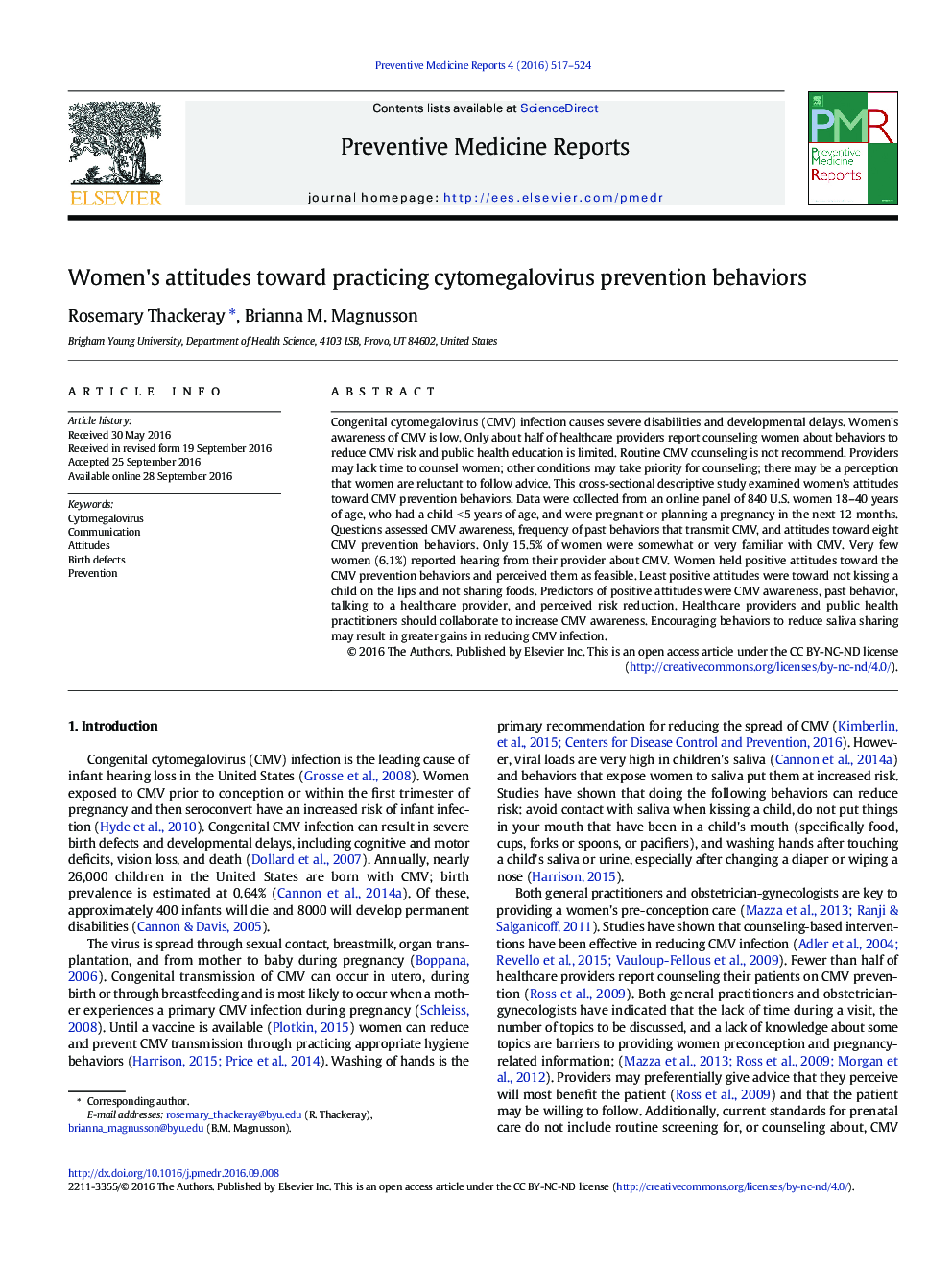| Article ID | Journal | Published Year | Pages | File Type |
|---|---|---|---|---|
| 8818729 | Preventive Medicine Reports | 2016 | 8 Pages |
Abstract
Congenital cytomegalovirus (CMV) infection causes severe disabilities and developmental delays. Women's awareness of CMV is low. Only about half of healthcare providers report counseling women about behaviors to reduce CMV risk and public health education is limited. Routine CMV counseling is not recommend. Providers may lack time to counsel women; other conditions may take priority for counseling; there may be a perception that women are reluctant to follow advice. This cross-sectional descriptive study examined women's attitudes toward CMV prevention behaviors. Data were collected from an online panel of 840 U.S. women 18-40Â years of age, who had a child <Â 5Â years of age, and were pregnant or planning a pregnancy in the next 12Â months. Questions assessed CMV awareness, frequency of past behaviors that transmit CMV, and attitudes toward eight CMV prevention behaviors. Only 15.5% of women were somewhat or very familiar with CMV. Very few women (6.1%) reported hearing from their provider about CMV. Women held positive attitudes toward the CMV prevention behaviors and perceived them as feasible. Least positive attitudes were toward not kissing a child on the lips and not sharing foods. Predictors of positive attitudes were CMV awareness, past behavior, talking to a healthcare provider, and perceived risk reduction. Healthcare providers and public health practitioners should collaborate to increase CMV awareness. Encouraging behaviors to reduce saliva sharing may result in greater gains in reducing CMV infection.
Related Topics
Health Sciences
Medicine and Dentistry
Public Health and Health Policy
Authors
Rosemary Thackeray, Brianna M. Magnusson,
